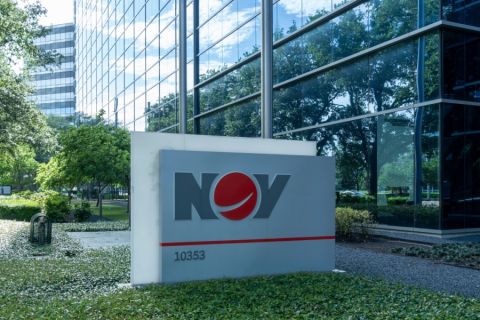
(Source: Shutterstock)
Caution characterizes the behavior of many oil and gas operators and their financiers, as access to capital is difficult and E&Ps’ hefty free cash flows are used in a disciplined manner. Debt is available, but it’s more difficult to access.
Capital discipline has become prescriptive among E&Ps, bankers said at the Oct. 2 Energy Capital Conference.
“It’s $90 oil, but people are drilling like it’s $50,” said Daniel East, managing director of energy capital markets for Houlihan Lokey.
Cristina Stellar, senior vice president and managing director of BOK Financial Securities, said E&P’s free cash flows are one of the most significant factors in the industry now.
“Let’s face it, in the current environment most producers do have a lot of cash to play with, but it’s a new world, and I don’t think any of them are in a hurry to tap into the undrilled territory,” she said, noting that Hess Corp. CEO John Hess, recently said he would not increase drilling even if oil hit $100/bbl.
Stellar said there have been few deals this year.
“There’s definitely a level of concern, macro concern, that’s back in the sector that hasn’t been there before. CFOs are used to when prices go up your lending market is open to new deals, but right now that’s not the correlation we have seen in the past,” she said. “The asset quality is there. They’re just being pickier of where they allocate those resources. … If the deal makes sense we’re going to make it, but in general, you are competing with liquidities.”
Bankers are also wary of what East described as an environment where there are many more “clubbed up” deals with multiple institutions offering debt on one deal, and almost no more “single check writers.”
Rob McLean, managing director for energy leveraged finance at Wells Fargo, said oil and gas companies should establish relationships with different banks in advance and find out what their needs are. Some, he said, want to serve as M&A advisers, while others just need deposits.
“I think you want to establish relationships with different banks,” McLean told the audience. “You’ve just got to figure out, ‘What do these banks need to be supportive when I do find a deal?’”
The reverberations from the failure of Silicon Valley Bank in March are also still being felt.
“It really shined a light on the regional banks … There’s fear out there that ‘Hey, maybe these regional banks aren’t well capitalized enough,’ and if one of them gets into trouble, customers are going to start pulling deposits and then regulators are going to have to bail out another bank,” he said.
McLean noted that many regional banks are also concerned about their concentrations in the commercial real estate market.
“If you’re a bank executive right now, how do you respond to all this? Well, you either slow down loan growth, you reduce the size of your loan book, or at a minimum, you’re going to be more demanding around the economics that you need when you’re booking a new loan or expanding your loan books,” he said.
However, the energy sector looks better than other sectors with stronger risk profiles, McLean said. He added that mid-cap E&Ps are getting strong support from the banks right now.
McLean also said that higher oil prices were making deals more attractive in the high-yield market.
Stellar said many E&Ps, especially large independents, are using their sizable free cash flows to avoid tapping additional debt.
“Producers have a lot of cash to play with. It’s a new world, and I don’t think any of them are in a hurry to tap into undrilled inventory. They want to keep that plateau,” she said.
She said private equity’s exit from many asset holdings has taken away the wild card status they used to have. The issue now is declining rig count and who will buy assets sold by private equity firms who have come to the end of their term on many of their oil and gas investments.
“Right now, as [private equity firms] exit those positions, it will take time for them to buy the assets and de-risk them and put rigs online,” she said.
The panelists said family offices are filling some of the capital shortage void, with some of them forming consortiums to amplify their purchasing power. During the conference, another panelist also noted family office’s growing presence in the oil and gas space, saying the family offices are starting to hire their own technical experts and “a lot of them look more and more like private equity firms.”
Recommended Reading
Barnett & Beyond: Marathon, Oxy, Peers Testing Deeper Permian Zones
2024-04-29 - Marathon Oil, Occidental, Continental Resources and others are reaching under the Permian’s popular benches for new drilling locations. Analysts think there are areas of the basin where the Permian’s deeper zones can compete for capital.
NOV Announces $1B Repurchase Program, Ups Dividend
2024-04-28 - NOV expects to increase its quarterly cash dividend on its common stock by 50% to $0.075 per share from $0.05 per share.
Repsol to Drop Marcellus Rig in June
2024-04-28 - Spain’s Repsol plans to drop its Marcellus Shale rig in June and reduce capex in the play due to the current U.S. gas price environment, CEO Josu Jon Imaz told analysts during a quarterly webcast.
US Drillers Cut Most Oil Rigs in a Week Since November
2024-04-26 - The number of oil rigs fell by five to 506 this week, while gas rigs fell by one to 105, their lowest since December 2021.
CNX, Appalachia Peers Defer Completions as NatGas Prices Languish
2024-04-25 - Henry Hub blues: CNX Resources and other Appalachia producers are slashing production and deferring well completions as natural gas spot prices hover near record lows.




